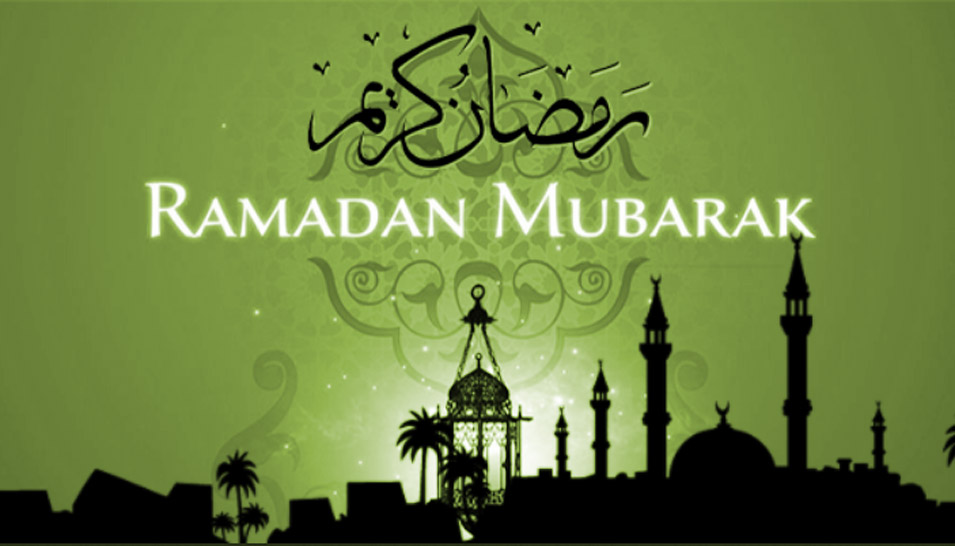
Ramadan is coming! Here are some 'fun facts' and advice from our Muslim colleagues at the U.S. Consulate General in Dhahran.
Ramadan in Saudi Arabia
- In Saudi Arabia, eating, drinking and smoking in public during daylight hours is illegal
- Roads and shopping centres are generally quiet by day and VERY busy at night
- Take particular care on the roads just before sunset
- If invited to iftar, accept! It is a great cultural experience
- Greet Muslim colleagues with "Ramadan Kareem" (lit: Generous Ramadan) or "Ramadan Mubarak" (lit: Blessed Ramadan)
Traffic and Travel during Ramadan
- From the last week of Ramadan until a few days after Eid, travel to Muslim countries, and particularly to Saudi Arabia, becomes congested
- Flights in and out of the Gulf become especially congested during the second half or Ramadan
- Particularly in the last 10 days of Ramadan many Muslims travel to Makkah to make Umrah (a pilgrimage outside Hajj)
- Local traffic congestion is common just before iftar (at sunset) and at night
What is Ramadan?
- Ramadan is the ninth month of the Hijri / Islamic calendar
- The word Ramadan is derived from "ar-ramad" which means intense heat, dryness, scorched ground
- Being a lunar calendar, the Hijri calendar is 11 to 12 days shorter than Gregorian calendar, therefore Ramadan is 11 to 12 days earlier every year
- Ramadan begins with the sighting of the new moon
- Ramadan continues until the next new moon is sighted, or a maximum of 30 days
- The start of Ramadan may differ from one location to another depending on confirmed sightings of the moon
- Ramadan is the month in which the Qur'an (the holy book of Islam) was revealed to Prophet Mohammed.
- For all Muslims it is a special month of fasting, repentance, increased prayer & increased charity
- The month ends with the festival of Eid Al-Fitr, a day of celebration and gratitude
- The fourth of five pillars or Islam
Common activities of Ramadan
- Iftar: Breaking of the fast at sunset (coincides with Maghrib, the 4th daily prayer)
- Sahoor: Light meal before dawn and the first prayer of the day
- Ziarat: Social gatherings (visiting relatives, sharing food with neighbours, friends and the poor)
- Tarawih: Optional prayers in the evening immediately after 5th prayer
- Qira'at: Reading of the Qur'an during free time
- Qiam: Optional late night prayers in the last 10 days
Fasting - Why?
- The primary objective of fasting is to attain taqwâ
- Taqwâ is the concept of "God consciousness"
- Taqwâ is an Arabic word that comes from "al-Wiqaya" which means prevention and protection
- Taqwâ therefore means to be aware of God and protect yourself against diverging from the path of God
- Helps Muslims draw closer to God through increased recitation and reflection of the Qur'an and additional prayers/worship
- Aids in increase of iman (faith) and ihsan (sincerity and righteousness) and removal of riyya' (showing off)
- Aids in purification of the heart/soul and helps to improve one's character
- Trains the person to do praiseworthy acts e.g. charity, kindness, generosity, patience and forgiveness
- A fasting person experiences some of the hardships of the poor and hungry
- Fasting begins at the break of dawn and ends at sunset
- Refrain from food, drink and sexual intercourse during fasting hours
- Depending on location and season, it can vary from 12 to 17 hours
- Refrain from blameworthy thoughts and acts (eg: foul language, vain talk, hurtful behaviour) at all times
- All Muslims except children, unhealthy adults (mentally or physically), adults travelling long distances, and women who are menstruating, in post-childbirth care, pregnant or breast-feeding.
---
American Citizen Services
Consulate General of the United States | Dhahran, Saudi Arabia
U.S. Department of State | +966.013.330.3200 | DhahranACS@state.gov
Register at https://step.state.gov/step/



